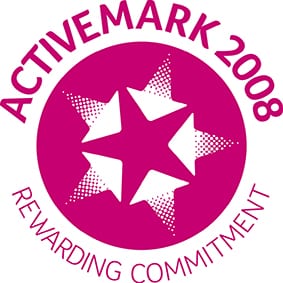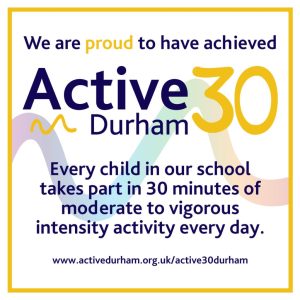Dear Parents and Carers,
Thank you for everything your family are doing to reduce the spread of coronavirus.
Please find below information you need to know to help your child attend school safely.
Have coronavirus symptoms and need a test?
If anyone in your household has symptoms you need to book a PCR (Polymerase Chain
Reaction) test as soon as possible. For more information and to book a PCR test visit
www.gov.uk/get-coronavirus-test or call NHS test and trace free on 119.
As coronavirus symptoms in children can vary it is advised that children who are unwell
should not attend school until they are well again.
Don’t have coronavirus symptoms and need a test?
LFD (Lateral Flow Device) testing is a fast and simple way to test people who do not have
symptoms of coronavirus but may still have the virus. It involves taking a throat and nose
swab sample and processing the sample with a lateral flow device which provides a result
within 30 minutes.
Visit www.durham.gov.uk/covid19testandtrace for information on how you can book an
LFD test or how to get tests to self-test at home.
Once you have completed your LFD test you must register your results at
www.gov.uk/report-covid19-result
If you receive a positive result from your LFD test, NHS test and trace will ask you to take
PCR test to confirm the result.
LFD tests are not to be used on primary school (or younger) children if they do not have
symptoms and should only be used by the person they were issued to. If you or your
secondary aged child has been provided with home testing kits, these tests must not be
used by anyone else in the household, for example a parent or another child in the family.
LFD testing detects around 60% of cases and is useful for picking up cases in people
without symptoms, however you could be infected and test negative.
LFD tests should not be used by anyone who has coronavirus symptoms or if your child
is self-isolating after being in close contact with a positive coronavirus case.
Self-Isolation
Anyone identified as being in close contact of a positive coronavirus case is legally
required to self-isolate at home for 10 days to ensure they don’t pass the infection on to
others, even if they don’t have symptoms.
This guidance still applies even if you have received one or more doses of a COVID-19
vaccine.
If required Durham County Council offers support to people having to self-isolate through
the County Durham Together Community Hub, details of which can be found at
www.durham.gov.uk/covid19help or by phoning 03000 260 260.
Getting to and from school
During peak times public transport can be very busy. If you can please consider using
alternative modes of transport to get to and from school. The best way is to walk, cycle or
scoot whenever possible, even once or twice a week makes a huge difference. Not only
does it give you quality time outdoors improving yours and your child’s health, but it also
reduces pollution around the school. If you do choose to travel by car consider parking
away from the school and walking a short distance to reduce congestion and making the
school gates safer for everyone.
To find out more visit www.durham.gov.uk/article/24031/Getting-to-and-from-school, or
speak to your school about the support they can give to alternative modes of transport.
Don’t forget we still need to maintain social distancing at drop off and pick up times at the
school gates. please work with us and the school to keep everyone safe by keeping more
than 2 metres apart wherever possible from people outside your household, to prevent the
spread of Covid19.
School leaders are working hard to make sure that children are safe in school and that the
risk of the virus spreading is minimised. We all have a responsibility to keep our
communities safe and we need the support of parents, grandparents and carers when they
are at the school gates.
The most recent guidance is set out in the link below:
https://www.gov.uk/government/publications/how-to-stop-the-spread-of-coronavirus-covid19/how-to-stop-the-spread-of-coronavirus-covid-19
Please keep your distance, please do not gather in groups and remember:
HANDS Wash your hands regularly and for 20 seconds.
FACE Wear a face covering in indoor settings where social distancing may be
difficult, and where you will come into contact with people you do not
normally meet.
SPACE Stay 2 metres apart from people you do not live with where possible, or 1
metre with extra precautions in place (such as wearing face coverings or
increasing ventilation indoors)
Please continue to support our schools with the excellent work they are doing to educate
your child and keep them safe.
Yours sincerely
Amanda Healy Jim Murray
Director of Public Health Head of Education and Skills
Adult and Health Services Children and Young Peoples Service






















